The beauty of the Mediterranean diet is that it is not a diet, but the principles of a balanced diet.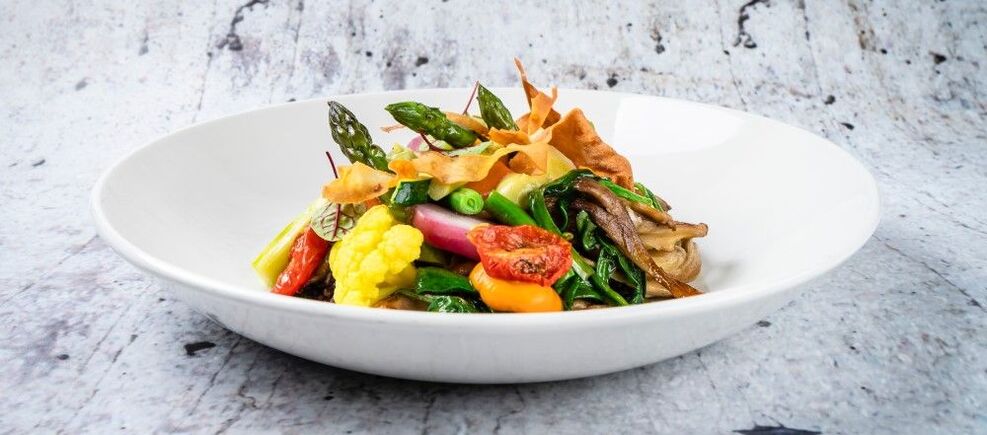 As a rule, almost any diet implies severe restrictions, it is desirable to do it under the supervision of a doctor, and has contraindications. Mediterranean diet is suitable for everyone, including children, pregnant women and older people. Here. Even if you are allergic or intolerant to certain foods, they are easily replaced by others. You will not be hungry and stressed. On the contrary, you will enjoy your food to the fullest. It is no surpriseThat the inhabitants of these regions have excellent health and cheerful disposition.
As a rule, almost any diet implies severe restrictions, it is desirable to do it under the supervision of a doctor, and has contraindications. Mediterranean diet is suitable for everyone, including children, pregnant women and older people. Here. Even if you are allergic or intolerant to certain foods, they are easily replaced by others. You will not be hungry and stressed. On the contrary, you will enjoy your food to the fullest. It is no surpriseThat the inhabitants of these regions have excellent health and cheerful disposition.
The Mediterranean diet is a lifestyle that allows you to stay in shape, rarely get sick and prolong youth. Study the principles of the Mediterranean diet by thinking about how to adjust the diet toward proper nutrition.
In 2010, the Mediterranean diet received official UNESCO status as an intangible heritage of the Mediterranean countries: Greece, France, Italy, Morocco, Spain, Croatia, Cyprus, Portugal.
If we turn to history, we can see that the gastronomic culture of ancient Greece and then ancient Rome already had all the main components of this diet. A lot of vegetables and fruits, seafood, olive oil, legumes, limitedMeat and sweets in moderation. That is, eat foods rich in vitamins, minerals and fiber, high-quality proteins, healthy fats and slow carbohydrates. They activate the metabolism, improve digestion, support all functional systems of the bodyThey strengthen, thanks to antioxidants, they slow down the aging process, increase the production of hormones of happiness, promote beauty and harmony. But most importantly, they always make themselves feel good. But vegetarianism is not very common in Mediterranean countries, while dishes made from red meat are practically not, as well as excessively heavy.
Scientists at the Harvard School of Public Health examined the health effects of the Mediterranean diet and concluded that "Mediterranean dietary practices, regular exercise and smoking cessation prevented more than 80% of coronary heart disease, 70% of strokes and 90% of diabetes. "can. type".
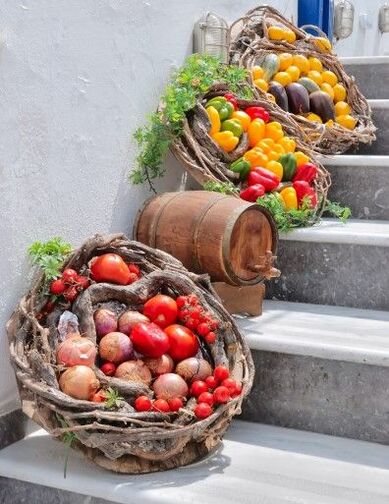
The term appeared only in the 50s of the twentieth century, it was introduced by a doctor, professor at the University of Minnesota Professor Ansel Keys. In 1945, he arrived in Italy with a group of American soldiers. Observation of local peopleWhile doing so, Keys found that he was less likely to suffer from cardiovascular system problems, and had a longer life expectancy than in his homeland. He suggested, and then confirmed, that it was a lifestyle and nutritional system. Some time ago, in the late 1930s, Italian nutritionist Lorenzo Piroddi first linked nutrition and sensitivity to diseases such as diabetes, obesity, and bulimia, which is why he is called the "father" of the Mediterranean diet. . and Ansel Keys lived ashore in Italy and lived for 100 years.
Let's list the pros of the Mediterranean diet.
Strengthens the cardiovascular system. Omega fatty acids obtained from olive oil, nuts, seeds, certain types of vegetables and fruits keep blood vessels clean and elastic.
Prevents or treats diabetes, as the diet is dominated by foods with a low glycemic index and almost no sugar is used, which means fast carbohydrates.
Fiber-rich foods are included in every meal, they guarantee a good metabolism, help to lose weight and maintain positive dynamics over time, improve the state of the nervous system, improve moodand stimulate brain activity.
Many foods in the Mediterranean diet promote the synthesis of endorphins, dopamine, serotonin and tryptophan, the so-called happiness hormones. This reduces the risk of developing Parkinson's disease, Alzheimer's, and dementia in old age.
Chatting with friends, long Sunday dinners with family, picnics in nature, cooking together are part of the culture of Mediterranean countries, which are used to reduce stress and anxiety levels and strengthen positivity in everyday lifeuseful to present.
Enhances youthfulness and beauty thanks to flavonoids and antioxidants. They reduce the damage caused by the oxidative process, which leads to deterioration, both internal and external. Selenium, manganese, zinc, vitamins A and E strengthen the skinAnd the hair is shiny and thick.
There are practically no drawbacks to the Mediterranean diet.
It helps you to switch to proper nutrition and improve your health. It is not seasonal, not limited in time, and implies a varied menu. His only drawback is the inability to lose weight quickly.
Although, in fact, this turns into a plus. Dramatic weight loss is often painful for the body: from a sharp change in the regime, a tangible loss of the normal daily caloric intake, we experience stress. The body of poor health. Reacts with decline in strength, immunity and mood, exacerbation of chronic diseases or new ones appear when diet is uncontrolled.
Yes, for some time the weight is rapidly reduced, but the brain turns on the protection mode against possible hunger, and even with low-calorie food the body manages to keep fat in reserve. Therefore. Often, after the end of the diet, the weight returns, and sometimes even increases.
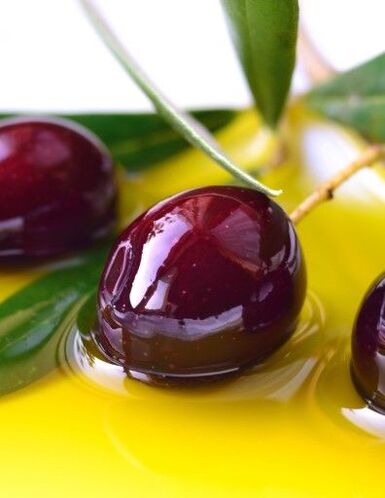
This won't happen with the Mediterranean diet. You won't see rapid changes, but be patient. You'll see the first results in a few months. You should eat smaller portions five times a day - this won't leave you hungry and the body needs nutrientsThe full range will be achieved. Gradually, a rational diet will restart the functional systems of the body, the metabolism will improve, and the weight will return to normal. Add physical activity, take at least a long walk, and the effect is noticeableWill happen.
The list of approved products is extensive. Nutritionists identify them in a pyramid based on sources of complex carbohydrates, high-quality fats and vegetables (60%). Formerly whole grains, durum wheat pasta, wholemeal bread, nuts and seeds, and legumes. Products of this group should be included in the menu daily.
Vegetables are presented in all kinds. See especially leafy vegetables such as spinach and kale, and minimally starchy vegetables such as eggplant and zucchini, cauliflower and broccoli, tomatoes, peppers and fennel. WHO recommended daily intake of vegetablesKey -- 6 servings per day -- is based on the amount of vegetables in the Mediterranean diet.
Previously, when there was no modern technology to preserve vegetables, cooking was based on the principle of seasoning. Alas, in our circumstances, seasonal vegetables are a short-lived pleasure. There is a solution: use frozen vegetables. ImportedUnlike, shock freezing, done within hours of harvesting at the peak of maturity, preserves almost all the vitamins in them. In winter and spring, the freshness of vegetables is an arbitrary concept. Manufacturers take into account long travel and storage. for which they treat them with chemicals.
Chickpeas, lentils and beans contain complete plant protein, a rich nutrient complex and fiber. They saturate well and create a feeling of satiety for a longer period of time. Legumes are combined with vegetables to create a variety of balanced meals. Thick, rich soups will keep you warm in cold weather, and salads are a great dinner option. Try eating vegetables and legumes for dinner two to three times a week.
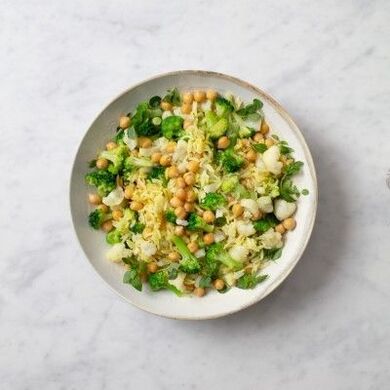
Jasmine Rice with Jasmine, Mini Broccoli, Mini Cauliflower and Truffle Oil
material:
- Chickpeas Bonduel 1 can (310 g).
- Mini Broccoli Bonduel 1 Pack (300 g).
- Cauliflower Mini Bonduel 1 Pack (300 g).
- Jasmine rice 200 grams.
- Basil 40 grams
- Curry 1 tsp
- Olive oil 20 ml.
- salt to taste.
Recipes:
- Cook rice as per directions. Add curry, mix.
- Heat olive oil in a skillet and lightly fry the cabbage and broccoli.
- Add cauliflower, chickpeas and rice, stir. Salt if necessary. Garnish with basil leaves before serving.
Pasta isn't bad if it's made from durum flour: it's low in calories, has a rich vitamin and mineral composition, and is easily digestible. In addition, pasta, like cereals, contains key B vitamins. is one of the sources. Pasta made from unrefined flour gives energy to the body, for example, it is recommended to eat it before physical activity.
Of course, all the benefits can be nullified if you serve with a dish with a fat sauce or as a side dish to meat - such a serving has nothing to do with Mediterranean traditions. OlivesLight sauces based on oil, vegetables, fish and seafood would be perfect substitutes for pasta.
Spaghetti with Mini Broccoli and Pine Nuts
material:
- Broccoli Pack (300 g).
- Spaghetti 250 grams.
- pine nuts 40 g.
- Olive oil 20 ml.
- Ricotta 100 grams.
- salt to taste.
Method:
- Cook the spaghetti until al dente.
- Boil broccoli according to directions.
- Break 100 grams of broccoli with a blender. Mix with ricotta and olive oil.
- Toss the spaghetti sauce and remaining broccoli, add the salt and heat in a saucepan over low heat for 2 minutes.
- Roast pine nuts in a dry skillet and sprinkle over spaghetti just before serving.
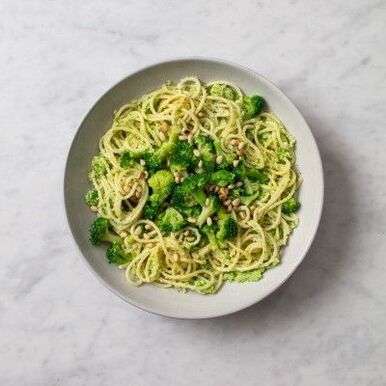
Olive oil, the alpha and omega of the Mediterranean diet, is the region's gastronomic symbol. Olives began to be consumed here thousands of years ago. Untreated, they taste very bitter, so they were salted or squeezed from the oil.
The reason for this is the substance oleuropein, a phenolic compound that, together with omega fatty acids and vitamin E, determines the benefits of olives. Phenols are powerful antioxidants, have antibacterial and anti-inflammatory properties, and fight free radicals. It has been found that 2-4 tablespoons of olive oil a day significantly reduces the risk of coronary heart disease.
Found mention of vitamin F, don't be surprised. Not many people know that essential fatty acids have a common name - vitamin F. These are arachidonic, linoleic and linolenic acids. The human body does not produce them and only obtains them from food.
But remember that not all olive oil is created equal. The best is extra virgin, a cold pressed oil produced by mechanical means. Its acidity, that is, the content of organic acids, does not exceed 0. 8%. Production ProcessDuring, such oil perfectly retains vitamins and antioxidants, it should be stored in dark glass bottles at room temperature. It should not be heat treated.
Add olives themselves anywhere: in salads, soups, main courses, pies, toasts or omelets. Olives have a salty taste, recipes with them do not require additional salting, which will reduce the amount of salt consumed. Find inspiration in our selection of recipes.
The second step of the pyramid is the source of true protein, which is 30% in the Mediterranean diet. Some parts of the body get protein from plant foods, most fish and seafood, natural yogurt, cottage cheese, low-fat cheeses (goat andEspecially popular are cheeses made from sheep's milk), white meat (chicken, turkey, rabbit) and eggs. Foods in this group should be eaten three to four times a week.
Fish should be eaten not only on Thursdays, as the Book of Delicious and Healthy Foods will, but several times a week. If you choose between river and sea, choose other, more fatty varieties. Not only protein, but also omega 3 acids, iodine, which is rarely found in foods, and an excellent complex of vitamins: A, E, D, C, B vitamins. Dense structure of muscle fibers. Therefore, they are digested immediately, which makes fish an ideal dietary product.
Talking about fish often leads to complaints that it is expensive and it is almost impossible to buy good fish. Let's clear up these exciting questions.
Indeed, only a few manage to buy freshly caught fish. In this case, like vegetables, do not be afraid to deep freeze. follow the rules of defrosting: on the lower shelf of the refrigerator, which will take 10-12 hours andAll nutrients will remain intact. Again, like vegetables, when buying, note that the package does not contain ice crystals. They are evidence that the fish was stored incorrectly: the temperature regime was not observed. The fish itselfDon't freeze either.
Fish is an expensive product in all countries, but here there is a way out. You can not buy salmon or tuna fillet, buy more affordable varieties: cod, mackerel, pink salmon, herring, halibut, flounder, saury, sardines. PrinciplesIn form, in Mediterranean countries, most families cook from this type of fish, the dishes with them are very tasty and varied. Many people neglect canned tuna, but in vain: it is much more budgetary than freshAnd it's just as healthy if it's made not in oil, but in its own juice. Cooking a salad with it is a pleasure: no need to bother with the bite.

cod fillet with corn
material:
- Young Corn Bonduel 1/3 can (140 g).
- Cod fillet 200 grams.
- Radish 2 pcs.
- cherry tomatoes 5 pcs.
- Lemon zest 2 pinch
- Lemon juice 1 tsp
- Any greens to taste.
- Arugula for serving.
- salt and pepper to taste.
Method:
- Dry the cod fillets, remove the bones with tweezers, and place the fish in the baking dish. Then lightly sprinkle with lemon juice, rub with a mixture of salt and pepper seasoning and lemon zest. Bake in the oven at 180 degrees for 15-25 minutes, depending on the size of the fillet.
- Cut the cherry in half, cut the radish into slices. Choose the herbs.
- Place the prepared cod fillet on a serving platter. Place a garnish of corn, tomatoes, radishes and herbs nearby. Garnish with arugula.
The same applies to seafood: We won't be aiming for lobsters, oysters, and lobsters, but let's take a closer look at mussels and shrimps. Iodine, selenium, zinc, iron, copper, magnesium — it's all about those minerals. Not a complete list, which have a low calorie content. Shrimp is rich in vitamin B12 - it takes part in the production of hemoglobin, and in mussels - vitamin E, which protects cell membranes from destruction.
The last 10% includes red meat, which is recommended to be eaten no more than once a week, animal fats and simple carbohydrates. Try to cook meat in a gentle way - stew or bake, and cook it without oil, Roast on the grill. Without desserts, life is devoid of sweet pleasure, but still choose healthy desserts. Use a minimum of sugar, plenty of natural sweetness of fruits, honey and even vegetables. For example, young cornSweet in itself, the desserts with it are delicious and original, and you can even eat it straight from the can.

Fruit Salad with Young Corn
material:
- Young Corn Bonduel 1 can (340 g).
- Blueberries 70 gr.
- Strawberries 70 grams.
- Raspberry 70 grams.
- orange 1 pc.
- Walnuts 80 grams
- Natural yogurt 400 ml.
Method:
- Peel the zest from the orange. Cut the orange into slices.
- Strain the corn kernels. Mix corn and berries.
- Chop walnuts and add to curd and mix.
- In a small bowl, pour the fruit salad with the young corn, the yogurt with the walnuts. Serve with a slice of orange.
Finally, a few words about spices.
The warmth of sunshine and the aroma of Mediterranean gardens is inherent in rosemary, sage, thyme, marjoram. Parsley and garlic are the simplest and most economical spices used by the region's chefs for centuries. Allspice, Provencal or Italian herbsA mixture of will fill the dishes with meaning and interesting nuances. Plus, they will allow you to use less salt - the brightness of the spices is enough for full flavor.

There are practically no prohibited foods in the Mediterranean diet and their list corresponds to the list given by all nutritionists. This includes fast food and any "junk" food, industrial semi-finished products, sauces, preservatives and flavor enhancers. It's sweet.
Drink plenty of water, don't neglect a glass of dry red wine (but no more! ) and stay healthy!














































































